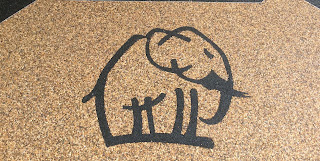Whether
you are currently looking for a new surface for an existing drive and walkway (or
are in the middle of planning a new home with your builder) if you have any
ambulant disabled person in the family, the type of surface you choose can make
a huge difference. It is always wise to understand what you might be up against
if you select the wrong surface. It’s also helpful to read up on the importance
of Resin Driveway for disabled people. Let’s find out some
more…
What Exactly is a Resin
Drive Surface?
Having suggested
that ambulant disabled people do better on resin surfaces, it might help to
understand exactly what a resin drive surface is first. There are actually two
very different types of resin drive surfaces available to the public:
Resin
Bonded Surfaces
A resin bonded drive is where aggregate (tiny stones ground to a
size between 1mm and 6mm) is covered with a film of UV resin.
Resin
Bound Surfaces
A resin bound drive is where the
aggregate is mixed with the resin and then trowelled directly onto the ground
and smoothed over.
Of the
two, most experts find that resin bound drives have a longer life expectancy
and are less likely to crack over time. Both are porous to allow water to
filter through to the ground underneath, but a resin bound driveway will offer
a better release of potential-ponding water in a quicker amount of time.
The Main Benefits of a
Resin Bound Driveway
Whether
you are seeking to surface just the driveway or all walkways as well, there are
many benefits to a resin surface. The first benefit was just mentioned above.
Resin surfaces are porous which means that you are less likely to encounter
ponding, from heavy rain or melting snow, than you would on a paving-block or
concrete surface. They also offer a great deal of grip, either underfoot or for
wheelchairs alike.
In
addition to being permeable, there is some amount of flexibility to a resin
bound surface. This means that over time, the surface is less likely to crack
or buckle. For disabled people who need to use a wheelchair or walker to get up
a drive or path, this is an invaluable benefit. One slight crack in the
pavement could quickly cause difficulty in moving around.
In the
end, it’s all about offering a long-lasting and safe surface for people with
ambulant disabilities. Not only do the experts suggest that a resin drive
surface is your safest option, but it will be one of the most attractive as
well!








